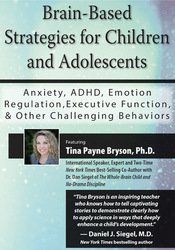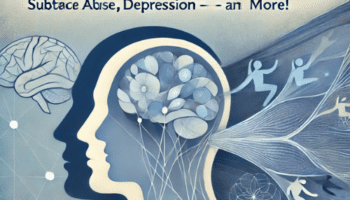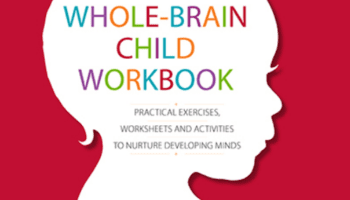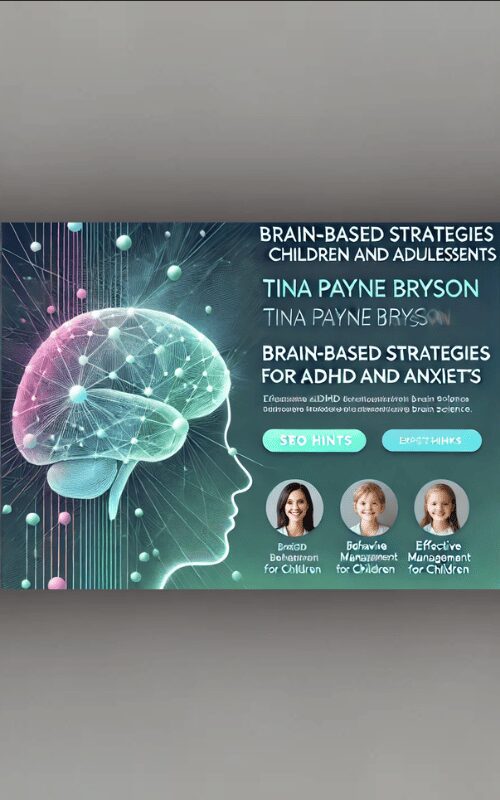Brain-Based Strategies for Children and Adolescents -Anxiety, ADHD, Emotion Regulation, Executive Function and Other Challenging Behaviors – Tina Payne Bryson
Brain-Based Strategies for Children and Adolescents -Anxiety, ADHD, Emotion Regulation, Executive Function and Other Challenging Behaviors – Tina Payne Bry…
Overview
Salepage check: Brain-Based Strategies for Children and Adolescents -Anxiety, ADHD, Emotion Regulation, Executive Function and Other Challenging Behaviors
Author: Tina Payne Bryson
- Faculty:
- Tina Payne Bryson
- Duration:
- 5 Hours 56 Minutes
- Format:
- Audio and Video
- Copyright:
- Mar 07, 2018
Description
Watch Dr. Tina Payne Bryson, international speaker and co-author with Daniel J. Siegel, M.D. of The New York Times bestsellers The Whole-Brain Child and No-Drama Discipline, as she revolutionizes the way you treat behavioral, emotional and somatic challenges using brain-based strategies for children and adolescents.
This workshop will use an interpersonal neurobiology lens to focus on bilateral and vertical brain integration that will challenge your current ways of understanding and treating behavioral and emotional struggles. Using stories, case studies, videos and humor, Tina will provide creative strategies on how to integrate brain science into your practice and personal life. Dive into the neurobiological aspects of attachment and narrative. Learn the latest on neuroplasticity, plus experience the changing brain in a way that’s clear, interesting and practical.
- Acquire new tools to help children and families with:
- Anxiety
- ADHD
- Attachment
- Behavioral avoidance
You will walk away with a new framework for treating children, adolescents and families along with effective strategies to improve attention, emotional regulation and resilient flexibility!
Handouts
| Manual (2.68 MB) | 39 Pages | Available after Purchase |
Outline
- The Whole-Brain Child – Integration Strategies
- Science of integration and well-being
- Bilateral integration: left/right brain
- Name it to tame it
- Connect & redirect
- Surfing emotional waves
- Build resilience for difficult transitions
- Vertical integration: upstairs/downstairs brain
- Strategies to regulate emotional reactivity
- Reduce fight, flight, freeze responses
- Teach clients about their brains
- Use it or lose it and neuroplasticity
- Emotions and Behaviors – Regulation Strategies
- Rethink intake and assessment
- Nervous system arousal/investigate toxic stress and co-regulation
- Zones of arousal physiological, emotional, and behavioral correlates
- Role of curiosity/beyond diagnoses and limits of our lens
- Interdisciplinary, interpersonal neurobiology approaches to mental health
- Role of sensory processing and information processing
- “Bottom-up” approaches
- Impact of movement on the nervous system
- Dysfunctional emotional regulation/ formulate a treatment approach
- Challenge typical diagnoses with arousal and relationship in mind
- Case studies
- A Neurobiological Lens of Attachment
- How attachment wiring impacts the attentional system and narratives
- Mental models and neurological wiring
- Weave attachment into treatment and change models
- Narrative and the attempt to understand the present functioning
- Attachment experiences in the classroom
- Using relationship to regulate neurophysiological states
- Specific Brain-Based Strategies
- Anxiety disorders
- ADHD
- Attachment
- Behavioral avoidance
- Emotional dysregulation
- Executive function
- Oppositional/disruptive behaviors
- Shifting attachment patterns
- Stress modulation
- Trauma
Faculty

Tina Payne Bryson, Ph.D. Related seminars and products: 15
Parenting consultant and psychotherapist
Private Practice
Tina Payne Bryson, Ph.D., is the co-author (with Dan Siegel) of two New York Times bestsellers, The Whole-Brain Child (Bantam, 2012) and No-Drama Discipline (Bantam, 2016), as well as The Yes Brain (Bantam, 2019). Dr. Bryson is also the co-author (with Dan Siegel, M.D.) of The Whole-Brain Child Workbook (PESI, 2015) and No-Drama Discipline Workbook (PESI, 2016). She is the executive director of the Center for Connection in Pasadena, CA, and a pediatric and adolescent psychotherapist. She keynotes conferences and conducts workshops for parents, educators, and clinicians all over the world. Dr. Bryson earned her Ph.D. from the University of Southern California, where her research explored attachment science, child-rearing theory, and the emerging field of interpersonal neurobiology.
Speaker Disclosures:
Financial: Tina Payne Bryson has an employment relationship with Pediatric and Adolescent Psychology Associates. She is a director with the Mindsight Institute. She is an author for Random House Delacorte publishers and receives royalties. She receives a speaking honorarium from PESI, Inc.
Non-financial: Tina Payne Bryson is the co-host of the online parenting show “The Intentional Parent”. She maintains a blog on kids and parenting (TinaBryson.com).
Curriculum
FAQs
Requirements
- Access to a stable internet connection for online materials.
- A computer or tablet for accessing video lessons and accompanying resources.
- Basic understanding of child development concepts (optional but helpful).
- Dedication to implementing the strategies for optimal results.
Features
- Comprehensive Tools: In-depth strategies for managing ADHD, anxiety, and challenging behaviors in children and teens.
- Emotion Regulation Techniques: Practical methods for helping children handle emotions effectively.
- Executive Function Support: Tips for enhancing planning, focus, and problem-solving skills in young minds.
- Interactive Modules: Engaging lessons and exercises to support real-world implementation.
- Expert-Led Insights: Presented by renowned author Tina Payne Bryson, leveraging the latest in neuroscience and psychology.
- Digital Access: Study at your convenience with 24/7 access to materials.
Target audiences
- Parents seeking tools to better manage their children’s challenging behaviors.
- Educators wanting to improve classroom management for children with ADHD, anxiety, or other behavioral difficulties.
- Therapists or counselors looking for actionable techniques to support young clients.
- Caregivers or guardians of children dealing with emotion regulation and executive function struggles.










